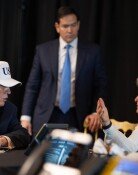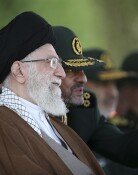[Editorial] Government Think Tank Critical of Government Policy Deserves Taxpayers Money
[Editorial] Government Think Tank Critical of Government Policy Deserves Taxpayers Money
Posted March. 06, 2005 22:36,
It is desirable that the Korea Development Institute (KDI), a government research institute, has changed its attitude towards government economic policies and is putting forward its own opinions. A case in point is when the think tank criticized the Fair Trade Commissions opposition to the merger between Samik Musical Instruments and Youngchang Piano due to worries over monopoly and oligopoly as the result of insufficient consideration of the dynamism of the domestic and international market.
As was apparent in the fact that wrong policies of previous governments led to pain to the public, like massive credit card delinquents and financially unstable credit card companies, the decision-making of each government ministry and Chung Wa Dae could not be always right. It is a deeply rooted problem that government ministries tend to hide or downplay side effects and costs of a policy, as they are not free from politics, and pursue interests of the administration and their own. If a think tank run on taxpayers money like KDI serves as a rubber-stamp institute, that is tantamount to squandering valuable taxpayers money. It should be able to approve policies from a long-term expert perspective and criticize wrong policies from discussion stage and present alternatives. Only when it contributes to reduction of failure and aftereffects of a policy by doing so can it be said to be worth the money that goes to it.
Its reduced function as a critical think tank is largely attributed to the government. Some say that even private think tanks have been put at disadvantage after pointing out flaws in policies according to their study, based on their expertise and conscience. A research institute even revealed that it gives face-lifts to its reports, after going through a hard time after unveiling a gloomy an economic prospect.
If the government implicitly or explicitly presses think tanks to publicize only those reports that please the government, there is no way to revitalize the research market. A slow research institute, in turn, increases the chances that self-righteousness and political tactics will lead to a failed policy. It does not fit with the incumbent governments orientation to suppress free discussion and criticism of policies by think thanks.
If research institutes, government and private, often turn a blind to wrong policies because of their fears of the government, that is tantamount to a waste of money and leads to serious side effects. There is no point having several government institutes in place if the government uses them as its props or suppress their critical study. The selection of a more reasonable and competitive policy is possible only when the government guarantees an environment in which active exchange and competition among opinions and perspectives that differ from the governments are possible.







